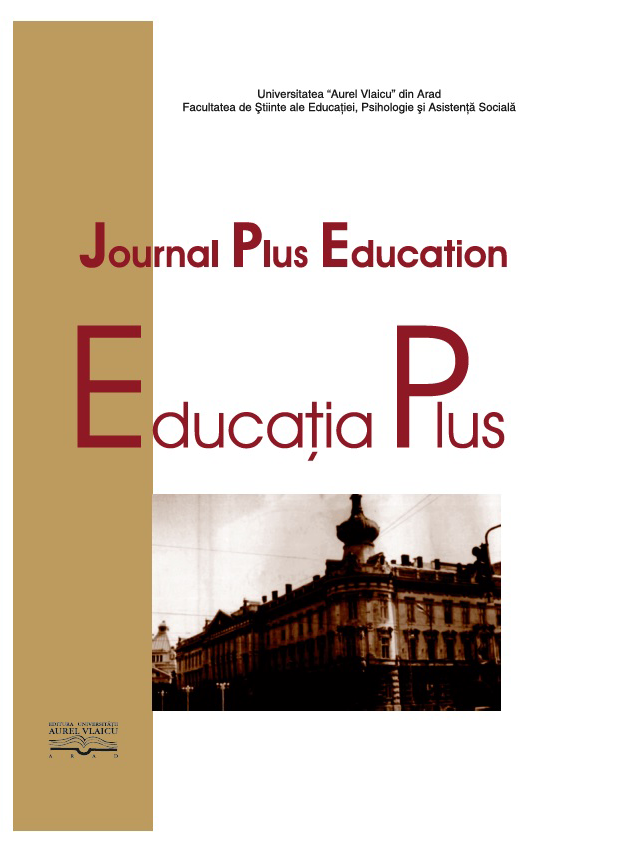THE IMPACT OF THE TIME SPENT ON SOCIAL NETWORKS ON EMOTIONAL INTELLIGENCE IN ADOLESCENTS
THE IMPACT OF THE TIME SPENT ON SOCIAL NETWORKS ON EMOTIONAL INTELLIGENCE IN ADOLESCENTS
Author(s): Adela Cîndea MăgăţSubject(s): Social Sciences, Education, Higher Education
Published by: Editura Universității Aurel Vlaicu
Keywords: emotional intelligence; social networking; pupils; gender; adolescents;
Summary/Abstract: This study aims at identifying the level of emotional intelligence in pupils, to determine correlations between these psychological characteristics and the time spending in social networks, as well as to identify differences between female and male adolescents, regarding the level of their emotional intelligence. The research sample consisted of 200 pupils (123 female and 77 male adolescents), aged 15 to 19 years, studying in Romanian school institutions. In order to test the hypothesis, the following instruments were used: a. Test for Emotional Intelligence (adapted by Mihaela Roco after Reuven Bar-On and Daniel Goleman), b. a questionnaire designed to identify the time spending by pupils to use the social networks (developed for research purposes). The Emotional Intelligence Test consists of 10 items that provide for four situations in which the person can be found. The completion of the test is aimed, on the one hand, at ensuring the individual's transposition as much as possible, and on the other, choosing one of the four possible answers’ variants, which are some concrete ways to react in the situations indicated by questions. The data analysis and obtained results highlights the existence of statistically significant negative correlations between the time spent by students on accessing social networks and the level of emotional intelligence. The statistical analysis also highlights the existence of a statistically significant difference between female and male adolescents at the level of emotional intelligence. The findings obtained constitute a support for the initiation of an intervention program for the personal development of adolescents.
Journal: Educația Plus
- Issue Year: XXVI/2020
- Issue No: 1
- Page Range: 239-246
- Page Count: 7
- Language: English

